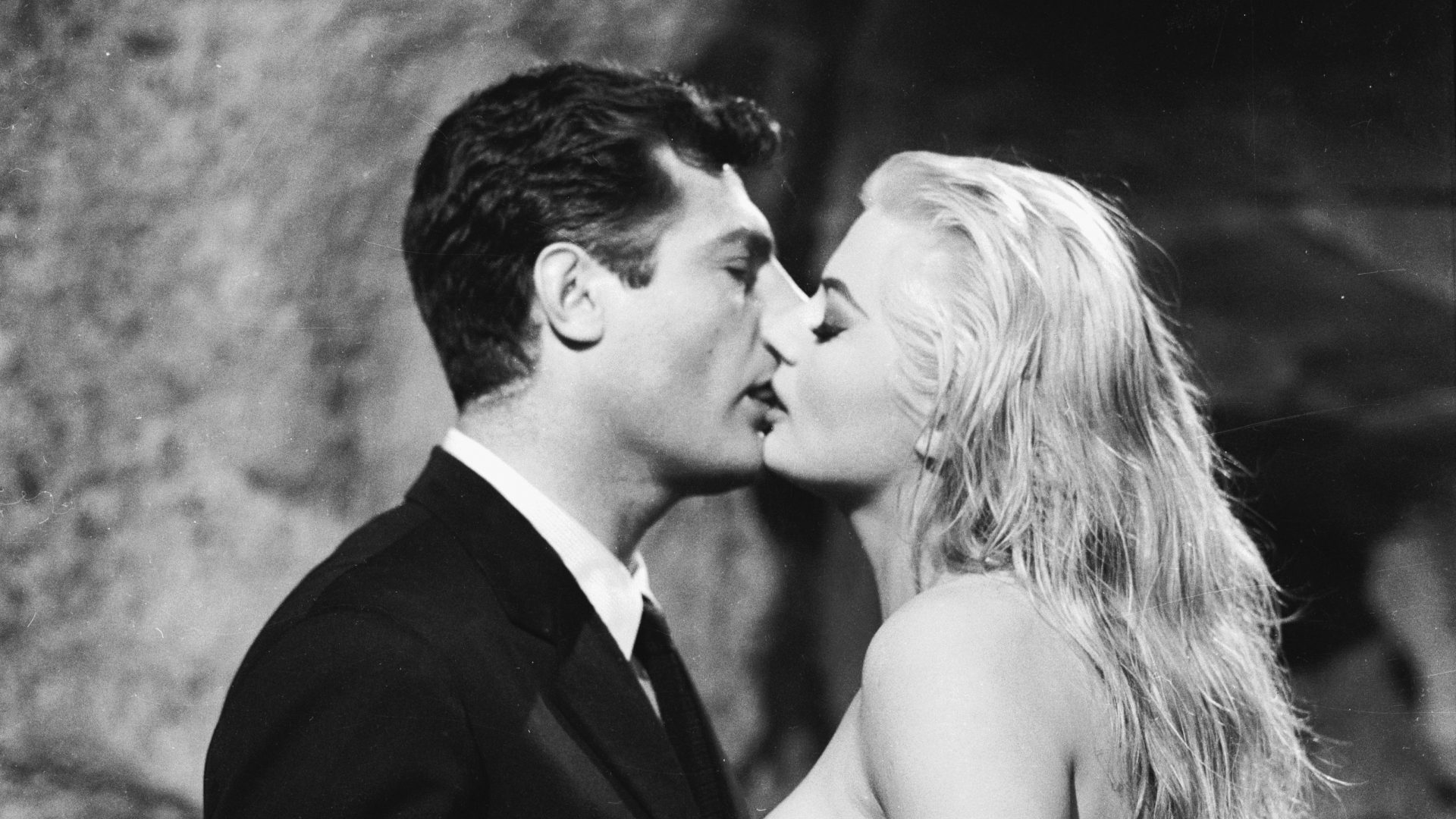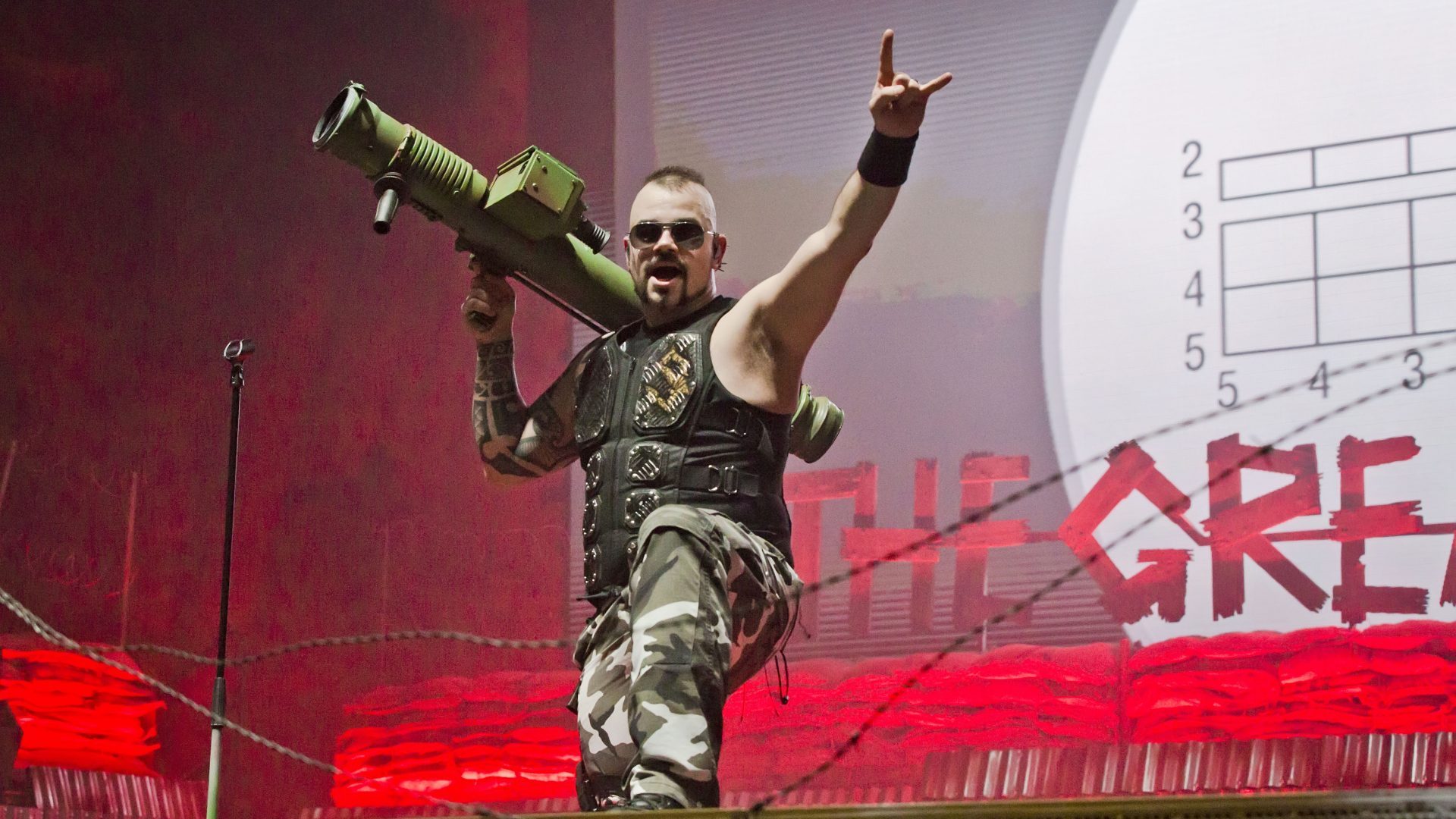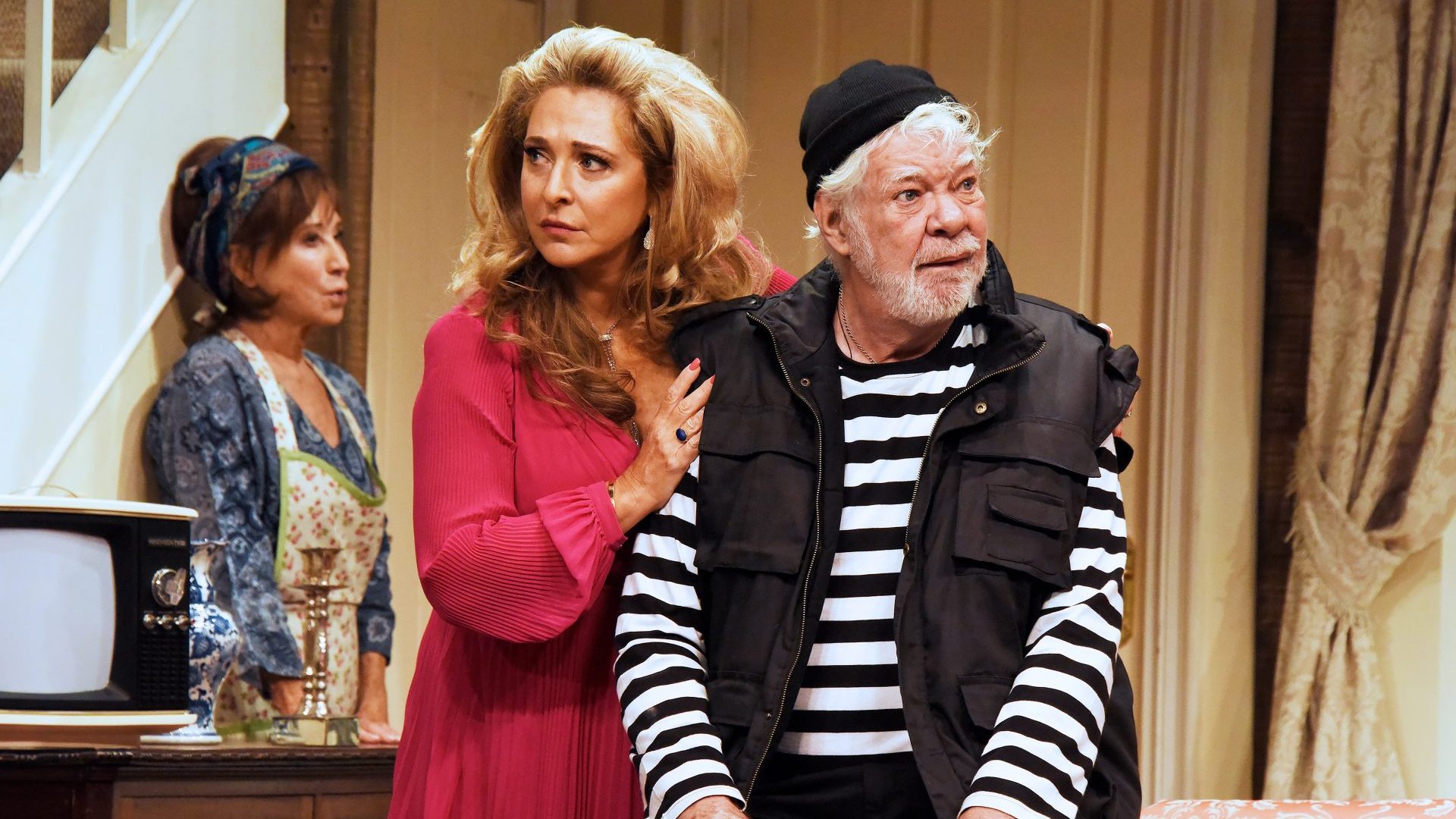Like many of Europe’s leading movie nations, Italy got a bit of a shock when the final box office figures of 2022 were released. For the first time in recent memory, not a single domestic title made the Top Ten, leaving the American blockbusters free to dominate, just as they had in France and Germany and in Spain (aside from the astounding local success of durable comedy star Santiago Segura and his Father There Is Only One franchise, among several in which this actor continues to thrive).
In Italy, Avatar, Minions, Spider-Man and Top Gun ruled supreme with Italian movies accounting for under 20% of the year’s total, while the overall picture at the pictures was, frankly, grim. “A measly 44.5 million admissions,” said Variety, noting a nearly 50% drop compared with pre-pandemic times. France, in comparison, could at least boast 152m admissions, with Spain at 59m and Germany amassing 74m.
By far the top Italian title at the home box office was La Stranezza (Strangeness), starring Toni Servillo, known internationally for his performances in Paolo Sorrentino’s modern classics, such as The Great Beauty.
“Italy was hit first and hardest by the pandemic,” notes academic and presenter of the Writers on Film podcast John Bleasdale, who has taught language and film in Italy for 20 years. “You can’t overestimate the shock that Covid sent through all layers of society here, and certain sectors are having great difficulty recovering. Older audiences are returning very slowly and reluctantly to the cinemas and mask wearing was mandatory in Italy for longer than anywhere else in Europe.”
Bleasdale also believes that the pandemic has also brought to the fore a generational shift in popular taste. “I think the biggest problem is the sorts of Italian movies that traditionally were big local hits, the sex comedies and the ‘cinepanetonni’ holiday movies, have very quickly lost their appeal for younger audiences whose humour and taste have moved on. I think this generation is searching for a new, homegrown star but they’ve quickly consigned the old bawdy, broad and, dare I say, sexist and racist comedy to the dustbin of film history.”
So, in a spirit of cautious optimism, a new season of Italian films hits London this week, showcasing what it hopes will be a new generation of film-makers and film styles. The From Venice To London programme at
Curzon Soho, in conjunction with La Biennale di Venezia and the Italian
Cultural Institute in London, offers a selection of titles from last year’s Venice film festival, where homegrown films were somewhat overshadowed – as has become customary at such a big awards-season launchpad – by big premieres that have gone on to Oscar and Bafta nominations, including The Banshees of Inisherin, Tár, The Whale and even the much-maligned Blonde. “Italian film is vibrant, riveting and visually stunning,” says festival director Katia Pizzi. “We want to show contemporary Italian cinema has all these qualities and can attract audiences.”
The five films travelling from the Lido to London deal with family, religion, terrorism, sexuality and gender, sometimes all at once, with a title such as Andrea Pallaoro’s US-set Monica boasting well-known talent including Patricia Clarkson and Transparent star Trace Lysette as a trans woman who returns home, for the first time since transitioning, to care for her ailing mother. Other titles, all from Italian directors, are twisted female friendship comedy Amanda, feuding mafia clan drama Burning Hearts (starring popular singer Elodie), 13th century-set nun musical Chiara (about St Clare of Assisi) and “jihadi brides” feature doc The Matchmaker.
As London welcomes these films, audiences here might well be asking if and how they represent a recovery in Italian cinema? The festival’s programmer Malaika Bova said: “Italy has a booming generation of brilliant new film-makers but so few titles make it to British screens. We need to bridge that gap and represent the quality of Italian production and I think the selection represents the most significant expression of Italian culture currently available.”
I spoke to two of the film-makers who’ll be bringing their films over. Susanna Nicchiarelli calls me from Rome to discuss her unique film Chiara, which features an eye-catching star performance from Margherita Mazzucco, known for her part in the international break-out Italian series
My Brilliant Friend, adapted from the Elena Ferrante books.
Chiara forms part of a loose trilogy of the director’s films examining revolutionary – Nicchiarelli happily calls them “punk” – women, beginning
with a biopic of the Velvet Underground singer in Nico, 1988, and another, Miss Marx, starring Romola Garai as Eleanor Marx (Karl Marx’s daughter), which both premiered at Venice, in 2017 and 2020 respectively.
“I feel very much part of the Italian tradition,” she says. “This film was particularly influenced by Pasolini, for example. But I only discovered
Pasolini when I was living in Paris as a student. So I think Italian cinema is a great traveller. And all Italian film-makers are influenced by Fellini, of course. But we have to do something different if we want Italian cinema to survive, so I hope I give it a new energy and spirit, with a focus on the power of women.”
Her film is certainly something different, weaving songs into the hallowed story of St Francis of Assisi and his disciple Clare, touching on issues of poverty and community as well as tackling the patriarchy (in the form of the pope). She believes the story of a determined woman forming a community and challenging power in 13th-century Umbria has inspirational messages for today.
“It’s not about rebellion, it’s about revolution and having a new idea,” says Nicchiarelli. “And I think that is the same for us in cinema. It’s the place for new ideas, for the community. Streaming and series and American movies, they are addictive and they take up a lot of our time and space but they are all the same. So, I think we are in a new era of film makers responding to the streaming world, which is very fragmented and where everyone in the family has a different screen. Now in cinema, we have to make something different that brings everyone together. When the cause looks lost, that’s when the best fights really begin.”
Italian director Andrea Pallaoro has, in contrast to Nicchiarelli’s period
piece, embraced America’s wide-open spaces with his movie Monica, a
contemporary family drama featuring an American cast but with a classic
Italian combination of drama, warmth and emotional redemption.
The story of Monica, a trans woman beautifully and tenderly played by Trace Lysette, traces the titular character’s reluctant return to a large but crumbling family home where matriarch Eugenia (the always-remarkable Patricia Clarkson) is bedridden and in need of constant care while slowly succumbing to cancer. In a real slow-burner, we’re never quite sure if Eugenia is able to recognise her estranged former son as we await a big moment of confession and reveal.
The director’s previous film, Hannah, was set in Belgium and the characters spoke French and it earned his leading actress Charlotte Rampling the Coppa Volpi for Best Actress at Venice in 2017. I wonder if there’s an Italian element detectable in Pallaoro’s international approach? “I see things through an Italian lens,” he says from Los Angeles, where he has been based
for 20 years. “My film-making hero was Antonioni, who went to London to
make Blow-Up and who made The Passenger with Jack Nicholson and Zabriskie Point in California. I think it was all part of his modernism and if
we are to be modernist now, that means being global.”
Monica is, in part, a road movie in the great American tradition, but it is also reflective of the journey the lead character has undertaken in her transition. Pallaoro is keen to add that his film has gone on a similar path, travelling to festivals and screenings without a mainstream release.
“The film travels very well and has played in over 20 countries,” he says. “That is something any film needs, to be adaptable. For me, to see how it impacts on audiences in many different places, that justifies making the movie and makes it a very valid and worthwhile experience.”
You could see Monica being set in a dusty palazzo or old villa, with big rooms and a once-glamorous mother figure rattling around. “It’s a universal story,” agrees Pallaoro. “But I think I have a European sensibility in the way I see things and the real trauma of the movie is about abandonment and not being understood. This is something very recognisable, and I think the European way is to tell that story with a lot of emotional complexity. Audiences are very ready for that now, in fact I think that is what they are demanding now. They want active participation in a movie, with their heart and their head.”
Susanna Nicchiarelli agrees. Ahead of her visit to London, she says she has noticed that, post-pandemic, the audiences stay for much longer after the movie for the Q&A sessions. “That’s the whole point of cinema now,” she says. “It’s a place for ideas. People don’t all have to like the movie, but they like the experience of coming to the movies and if they can stay and talk and share their thoughts, this is very Italian, very human.
“So, it’s very important that we make cinema with something to say, something surprising. The commercial market is so unpredictable – who knows what the success of a story of a 13th-century nun will be, but if it is brave and has a point of view, then people will always find something to talk about and that is crucial to Italian film now, to all film, I would say.”
Pallaoro also has faith in a new generation of cinema audiences. “I was in Rome for many months when editing Monica,” he recalls. “And I noticed a society getting back the desire to gather together but that people had changed. The pandemic gave everybody occasion to find something about themselves and they want to come out and show it now, they are proud to be individual. Maybe they want to be more brave, more open to discovery. And cinema can be a big part of reflecting that change.”
From talking to Pallaoro and Nicchiarelli, I got the feeling they both feel a responsibility when making movies for the cinema these days. For example, when I ask if they’re confident that cinema still has a future rather than a glorious past, they both respond with outbursts of emotion and both cry that it’s “their way of life”.
Nicchiarelli’s film is spoken (and scripted) in the Umbrian “volgare” dialect, one of the first forms of Italian language that was committed to text by St Francis and that wasn’t in the Latin of the church. “It is a new language, a revolution, and this is where cinema can be, too,” she says. “It is community and a place to find each other. We must remember it is special. And that is how to take on the powerful giants of American cinema and that streaming series. Be special, be different.”
Film-makers do tend to wax lyrical when asked about the movies. They would, wouldn’t they? But these Italian cineastes coming to London are
committed to both their own cinema’s rich history and to its bright future.
As Andrea Pallaoro tells me: “Cinema is the best art form for entering the psychological and emotional world of a character – I feel like I’m photographing their thoughts and their emotions and that’s a very special magic and a big responsibility to make something that’s truthful. That is what I fell in love with as a kid at the movies. You just recognise yourself and your feelings in what you see on the screen. And I am sure that’s what audiences still want in a cinema, always a conversation with the image and themselves in the dark.”
From Venice to London runs from 3-6 February at the Curzon Soho




